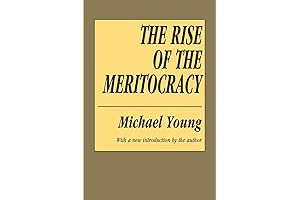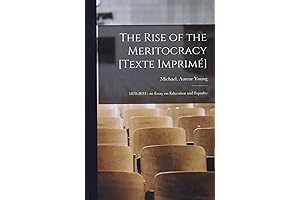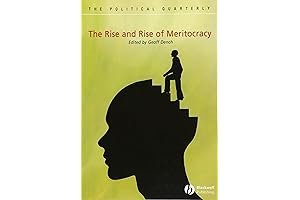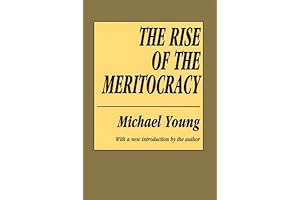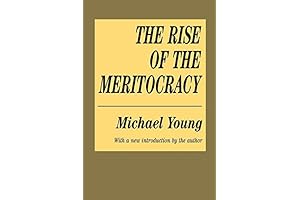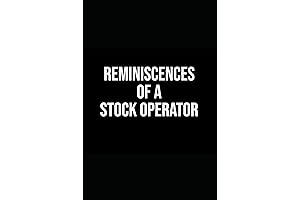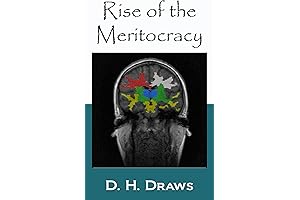· meritocracy · 12 min read
Understanding the Rise of the Meritocracy: A Comprehensive Guide
Discover the rise of the meritocracy and its profound impact on modern society. Learn how it shapes education, equality, and social mobility.
The rise of the meritocracy refers to the growing emphasis on individual talent and merit as the primary determinants of social status, wealth, and power. It's a fascinating and complex phenomenon with significant implications for society.
Overview

PROS
- Explores the implications of a society based solely on merit, providing valuable insights into social stratification and equity.
- Presents a thought-provoking examination of the role of intelligence and merit in shaping societal outcomes.
CONS
- Some may find the dystopian vision portrayed in the novel to be overly pessimistic.
- The prose can be somewhat dense, requiring attentive reading for full comprehension.
In his seminal work, 'The Rise of the Meritocracy,' Michael Young posits a future society where intelligence becomes the sole criterion for determining an individual's social status. This thought-provoking novel explores the consequences of such a system, challenging our assumptions about fairness and equality.
Young paints a vivid picture of a meritocratic society, where individuals are ranked according to their cognitive abilities from Alpha to Gamma. This stratification has profound implications for individuals' life chances, opportunities, and social standing. Young deftly illustrates how power becomes concentrated in the hands of the intellectually elite, leading to a society characterized by both brilliance and inequality.

PROS
- Unveils the intricate history and impact of meritocracy in shaping modern society
- Provides insightful perspectives on the evolution of meritocratic systems and their consequences
CONS
- May require a foundation in historical concepts to fully grasp the complexities presented
- Some readers might find the focus on Western meritocracy limited in scope
In 'Aristocracy of Talent,' the rise of meritocracy is captivatingly explored - a system that values talent and achievement over inherited privilege. The book unveils the profound impact meritocracy has had in shaping the modern world, delving into the historical roots of this concept and its consequences. Through meticulous research and engaging prose, the author provides valuable insights into how meritocratic principles have influenced societies, economies, and individuals.
While it requires a foundational understanding of historical concepts to fully appreciate, this book offers a comprehensive examination of meritocracy's evolution and global reach. However, its emphasis on meritocratic systems in the West may limit its applicability to other cultural contexts. Overall, 'Aristocracy of Talent' is an invaluable resource for those seeking an in-depth understanding of meritocracy and its implications in our contemporary world.

PROS
- Delves into the historical development of meritocracy within educational systems.
- Explores the complexities of social mobility and its impact on equality of opportunity.
CONS
- Some may find the historical focus limiting in terms of contemporary relevance.
- Could benefit from providing more practical suggestions for addressing current educational disparities.
Michael Young's "The Rise of the Meritocracy" offers a thought-provoking examination of the evolution of educational systems and their impact on social mobility. Young traces the development of meritocratic principles in education from the late 19th century to the early 21st century, arguing that while meritocracy holds the promise of equal opportunity, it has also created new forms of inequality.
Young's analysis is insightful and nuanced, drawing on a wide range of historical sources and sociological research. He shows how the rise of meritocracy has led to a shift from a focus on social class to a focus on individual ability, but that this shift has not necessarily resulted in greater equality. In fact, Young argues that meritocratic systems can actually reinforce existing social inequalities, as those from privileged backgrounds are more likely to have access to the resources and opportunities that allow them to succeed in school.

PROS
- Provides a comprehensive analysis of the rise of meritocracy.
- Explores the impact of meritocracy on individuals and society.
CONS
- Some argue that it oversimplifies the complex factors that contribute to success.
The Rise and Rise of Meritocracy is a must-read for anyone interested in the changing landscape of social mobility. Michael Sandel eloquently argues that merit has become the dominant ideology of our time, shaping everything from education to the workplace. While meritocracy has its virtues, Sandel also raises concerns about its potential drawbacks, such as the creation of a new elite and the erosion of empathy for those who are less successful. This book is sure to spark lively debate and help us to better understand the forces that are shaping our society.
Overall, The Rise and Rise of Meritocracy is a well-written and thought-provoking book that offers a valuable contribution to the ongoing debate about meritocracy. Whether you agree or disagree with Sandel's conclusions, you will likely come away from this book with a deeper understanding of the complexities of meritocracy and its implications for the future of our society.

PROS
- Exceptional research and analysis on the rise of meritocracy
- Provocative examination of the implications of meritocratic systems
CONS
- Some may find the writing style academic and technical
- Lacks concrete strategies for addressing inequalities within meritocracy
In "The Rise of the Meritocracy: 1872-2000," Michael Young masterfully explores the profound impact of meritocracy on modern society. Through meticulous research and analysis, Young traces the historical evolution of meritocratic ideals from their inception in the 19th century to their widespread adoption in the 20th.
The book's central thesis revolves around the transformative effects of meritocracy on social and economic structures. Young argues that while meritocratic systems have undoubtedly led to increased opportunities for individuals from diverse backgrounds, they have also exacerbated social stratification and inequality. He compellingly demonstrates how the emphasis on merit-based competition has unintentionally created a new elite class that perpetuates its own advantages.

PROS
- Illuminating exploration of the potential consequences of a meritocratic society.
- Thought-provoking insights into the complexities of social stratification and equality.
CONS
- Some may find the dystopian vision presented in the book to be overly pessimistic.
- The book's initial publication date of 1958 may limit its relevance to contemporary issues.
In The Rise of the Meritocracy, Michael Young presents a thought-provoking exploration of the potential consequences of a society based on meritocratic principles. Set in a dystopian future, the novel depicts a world where individuals are ranked according to their intelligence and abilities, with the most meritorious rising to the top of the social hierarchy. Young's incisive analysis delves into the complexities of social stratification and equality, questioning the assumptions and implications of a meritocratic system. While the book's initial publication date of 1958 may limit its relevance to some contemporary issues, its core insights into the nature of meritocracy remain highly relevant and thought-provoking.
Young's dystopian vision serves as a cautionary tale about the potential pitfalls of a society that values merit above all else. The novel raises important questions about the nature of equality, the role of individual responsibility, and the impact of social stratification on human relationships. Through the experiences of its characters, The Rise of the Meritocracy challenges readers to consider the broader implications of creating a society based solely on merit, encouraging them to reflect on the values and principles that should guide a truly just and equitable society.

PROS
- Cogent examination of class structure and social mobility.
- Provocative insights into the potential consequences of a meritocratic society.
CONS
- Some arguments may be considered outdated in light of contemporary social research.
- Lacks a comprehensive analysis of alternative social systems.
Michael Dunlop Young's 'The Rise of the Meritocracy' presents a captivating and thought-provoking analysis of social hierarchy and class structure. Published in 1958, the book explores the potential implications of a society based solely on merit, where individuals are ranked solely on their intellectual abilities.
Young's writing is both insightful and accessible, offering a nuanced perspective on the complexities of social mobility. 'The Rise of the Meritocracy' remains a valuable contribution to the ongoing discourse on social inequality and the challenges facing our societies today.

PROS
- Provides invaluable insights into the mind of a legendary stock trader, Jesse Livermore.
- Offers practical guidance on risk management and market psychology.
CONS
- Lacks modern trading techniques and strategies.
- Some concepts may be outdated due to advancements in the financial industry.
Delving into the depths of financial mastery, "Reminiscences of a Stock Operator: Rise of the Meritocracy" presents a captivating narrative centered around the life and strategies of Wall Street legend Jesse Livermore. Through Livermore's own words, this timeless classic unravels the intricacies of market speculation, offering invaluable lessons for aspiring traders and investors alike.
Livermore's profound insights into risk management and market psychology resonate throughout the book. His experiences serve as cautionary tales, highlighting the pitfalls of excessive leverage and the importance of emotional discipline. However, it is important to note that while "Reminiscences of a Stock Operator" provides a glimpse into the fundamentals of trading, it may not fully encompass the complexities of modern financial markets. Nevertheless, Livermore's timeless principles remain relevant, offering a solid foundation for understanding the dynamics of market behavior and the rise of meritocracy in the financial world.

PROS
- Exposes the inherent flaws and inequities within meritocratic systems.
- Provides a comprehensive analysis of how meritocracy perpetuates classism and racism.
CONS
- Some may argue that the book oversimplifies the complexity of social mobility.
- The solutions proposed may require significant societal and economic restructuring.
The Meritocracy Trap delves into the fallacy of meritocracy, a concept deeply ingrained in our society's fabric. Kellie Carter Jackson meticulously deconstructs this myth, exposing its role in perpetuating inequality and dismantling the middle class. Jackson's work is a powerful indictment of the meritocratic illusion, demonstrating how it exacerbates classism and racial disparities.
Jackson meticulously dissects the concept of meritocracy, tracing its historical roots and its impact on various societal systems, including education, employment, and social mobility. By weaving together rigorous research and compelling narratives, she unveils the ways in which meritocracy privileges those who are already advantaged while creating barriers for marginalized communities. The book's strength lies in its comprehensive examination of meritocracy's many facets, ultimately arguing that true equality can only be achieved by addressing the underlying systemic inequities that persist in our society.

PROS
- A thought-provoking exploration of the potential pitfalls of meritocracy.
- A compelling and cautionary tale that highlights the dangers of a society based solely on merit.
CONS
- It may be challenging for some readers to connect with the characters.
- The dystopian elements of the novel may be off-putting to some readers.
The Rise of the Meritocracy by Michael Young is a thought-provoking novel that explores the potential pitfalls of a meritocratic society. Young's vision of a future where intelligence is the sole determinant of social status is a chilling one, and his novel serves as a cautionary tale about the dangers of such a society.
The novel follows the story of Victor, a young man who is born into a working-class family. Through a combination of hard work and intelligence, Victor rises through the ranks of society, eventually becoming a member of the elite meritocracy. However, as Victor rises in status, he comes to see the dark side of the meritocratic system. He sees how the system creates a divide between the intelligent elite and the rest of society, and how it leads to a society where only the smartest and most ambitious succeed.
The Rise of the Meritocracy is a well-written and thought-provoking novel that raises important questions about the nature of society and the dangers of meritocracy.
The rise of the meritocracy has driven educational reforms, technological advancements, and economic growth. However, it also presents challenges to traditional notions of equality, social mobility, and the distribution of resources. Nevertheless, understanding its historical context, principles, and consequences is crucial for navigating its complexities in the 21st century.
Frequently Asked Questions
What are the benefits of a meritocracy?
Meritocracy promotes efficiency, encourages individual growth, ensures fair competition, and reduces reliance on inherited advantages.
What challenges does a meritocracy present?
Meritocracy can exacerbate social inequality, limit opportunities for marginalized groups, and create a culture of excessive competition and pressure.
How does the rise of the meritocracy impact education?
It emphasizes standardized testing, creates performance-based incentives, and focuses on developing skills and knowledge to enhance employability.
How does the rise of the meritocracy contribute to economic growth?
Meritocracy fosters innovation, encourages skill development, and promotes efficient allocation of human capital in the labor market.
What are some critiques of the meritocracy?
Critics argue that meritocracy perpetuates elitism, undermines social solidarity, and may not always reflect true merit based on socioeconomic factors.
